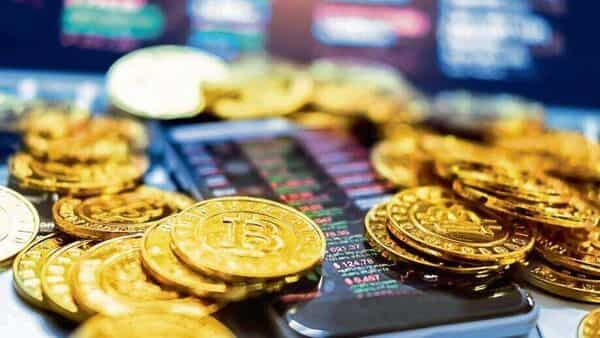- Finance Ministry to define characteristics of cryptos, their usage and legal framework.
BENGALURU, NEW DELHI : The government has started work on a comprehensive indirect tax regime for crypto assets that would check any revenue loss to the exchequer due to the ambiguity around the true nature of these assets.
The finance ministry plans to define the characteristics of cryptocurrencies, their usage, and how they fit into the existing legal framework, two people aware of discussions in the government said. Once its legal nature is decided, the appropriate GST rate will be decided, they said, requesting anonymity. It could even be a new GST slab between 18% and 28%, they added.
“We are still discussing the applicability of GST in case of crypto assets…right now, it is levied on services… so we need to see if crypto assets are declared as a good or service. We can have a special rate for it. It may not necessarily be 18% or 28%. Maybe somewhere between that. We have had a few discussions on it and will arrive at a decision soon,” said one of the two people.
You might also like
Why your fuel bill hasn’t gone down yet
6 charts explain India’s motown revival
Renaissance’s Murarka recounts working with Jhunjhunwala
The move indicates efforts of the indirect tax administration to catch up with shifts in the world of technology and finance.
“A better understanding of how cryptocurrencies fit into our legal system is the pre-requisite for the decision on the GST rate,” said the second person.
An email sent to the finance ministry on Friday seeking comments for the story remained unanswered till press time.
Crypto assets have been a subject of heated debates, with the Reserve Bank of India saying they are a threat to the country’s financial stability. Meanwhile, the Centre is in touch with multilateral agencies and the Bank for International Settlements to develop a consensus on regulating such assets.
Experts said while there is clarity on the levy of GST on the fee levied by cryptocurrency exchanges on transactions, there is ambiguity around transactions between parties outside an exchange about whether it needs to be treated as a supply of goods or services or changing hands of money.
“Once there is regulatory clarity on the nature of cryptocurrency, and how transactions are to be treated, it would be easier to align the tax framework to that regulatory framework,” said Abhishek Jain, partner, indirect tax at KPMG India.
Globally, central banks are sceptical about the trend of decentralized finance due to the risks speculative cryptocurrency pose to financial stability, a warning that has turned out to be prophetic after the sharp drop in the value of some of the currencies and the implosion of TerraUSD, a stablecoin, this year.
While the government’s current view is that GST will apply only on the margin or service fees and not on the entire value chain or the gross value of the asset, issues like tax treatment of certain transactions like mining or ‘airdropped crypto tokens’ are being examined.
On the direct tax side, which deals with the income or capital gain from crypto transactions, the Centre introduced a 30% tax on income from crypto assets with effect from 1 April. It also introduced a 1% tax deducted at source (TDS) on payment of virtual assets exceeding ₹10,000 in a year and taxation of such gifts in the hands of recipients from 1 July.
Pratik Jain, a partner at Price Waterhouse & Co. LLP, said cryptos are treated as financial or securities transactions in many countries and, hence, exempt from GST. “Given the complex nature of transactions and varying practices, it would be important for the government to engage with the industry and have detailed deliberations,” said Jain. He added that it might require legislative changes as well. “Some clarification or guidance on past transactions would also be necessary to avoid unwarranted disputes.”
M.S. Mani, a partner at Deloitte India, said the absence of a clear GST framework encompassing classification, rates and input tax credit eligibility has led to several ambiguities among exchanges, buyers and sellers. “Establishment of a clear framework would help all crypto market participants to adopt a uniform treatment of crypto transactions,” he said.
Elsewhere in Mint
In Opinion, Manu Joseph writes why Roger Federer makes us feel lucky. Josep Borrell says the Kremlin would now find it impossible to turn the tide. Tulsi Jayakumar reveals the mantra to follow for start-ups amid financial uncertainty. Long Story profiles ex-SBI men who saved two banks.
Download the Mint app and read premium stories
Log in to our website to save your bookmarks. It’ll just take a moment.
You are just one step away from creating your watchlist!
Oops! Looks like you have exceeded the limit to bookmark the image. Remove some to bookmark this image.
Your session has expired, please login again.
You are now subscribed to our newsletters. In case you can’t find any email from our side, please check the spam folder.
This is a subscriber only feature Subscribe Now to get daily updates on WhatsApp


